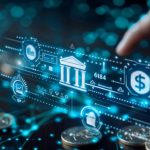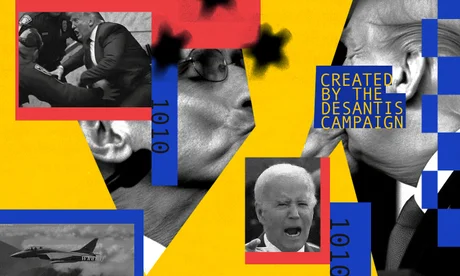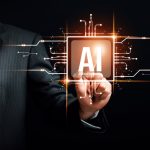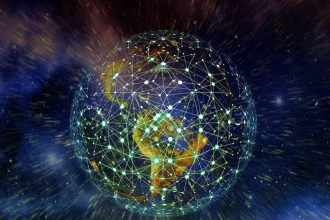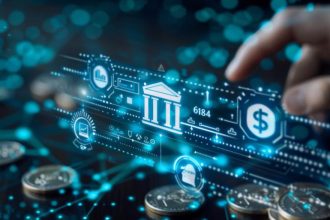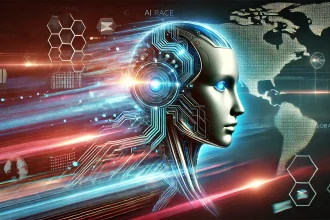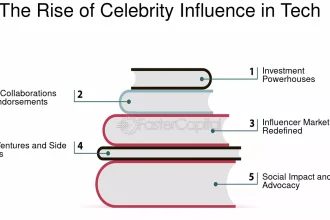The Rise of Political Artificial Intelligence
Artificial Intelligence (AI) has evolved from a scientific curiosity to the most powerful tool in modern politics and governance. What once started as an experiment in machine learning has become an instrument that influences elections, global diplomacy, and even public opinion. Governments, corporations, and tech giants are racing to control AI not just for innovation — but for dominance.
- The Rise of Political Artificial Intelligence
- AI in Government: A Double-Edged Sword
- The Global AI Race: U.S. vs. China vs. Europe
- Celebrity Voices and AI’s Pop Culture Presence
- AI’s Role in Political Propaganda and Elections
- AI Ethics: Humanity’s Greatest Test
- Global Reactions to AI Policy
- The Corporate Power Struggle
- The Human Side of AI: A Cultural Revolution
- FAQs
- Conclusion
From campaign management to voter targeting and surveillance systems, AI is redefining political strategy. In a world where data is power, algorithms have become the new policymakers, analyzing trends, predicting behavior, and shaping the information people see online. The result is a new kind of digital democracy — one that can empower citizens but also manipulate them with precision unseen in human history.
AI in Government: A Double-Edged Sword
Governments across the world are embracing AI to improve efficiency and public services. AI-driven systems are used for law enforcement, tax collection, defense strategy, and even pandemic prediction. In countries like the United States and China, AI is central to military innovation and national security infrastructure.
However, this rise brings ethical dilemmas. Surveillance technologies powered by AI can detect criminal behavior — but they can also be used to suppress dissent. Social scoring systems, facial recognition, and predictive policing have sparked global debates over privacy and civil rights. The balance between security and freedom is becoming increasingly fragile.
While some nations push for “responsible AI” frameworks, others prioritize control and efficiency over ethics. This divergence in AI governance may define the next geopolitical divide.
The Global AI Race: U.S. vs. China vs. Europe
The 21st century’s great power rivalry is not about nuclear weapons or oil — it’s about data and algorithms. The United States, China, and the European Union are the primary players in this digital arms race.
The U.S. dominates AI innovation through private companies like Google, Microsoft, and OpenAI, while China focuses on state-driven programs integrating AI across industries and governance. Europe, meanwhile, is positioning itself as the ethical regulator of AI, pushing policies that emphasize privacy and human rights.
This competition extends to every sector — from defense to healthcare to social media — and it’s reshaping global influence. Whoever leads in AI will shape not just economic outcomes but also global norms around privacy, truth, and governance.
Celebrity Voices and AI’s Pop Culture Presence
Celebrities have become unexpected advocates and critics in the AI conversation. Tech visionaries like Elon Musk and Hollywood icons like Scarlett Johansson have been vocal about the risks and possibilities of artificial intelligence. Musk warns that AI could become humanity’s greatest threat if left unchecked, while Johansson recently clashed with an AI company for allegedly cloning her voice without consent — a case that highlighted deepfake ethics and creative ownership in the AI era.
The entertainment world itself has been transformed by AI. From virtual actors to AI-generated music, the line between real and artificial creativity is fading fast. Artists use AI to push creative boundaries, while others fear it may replace human imagination entirely.
This growing celebrity involvement has brought AI into mainstream culture, influencing how the public perceives the technology — as both an opportunity and a threat.
AI’s Role in Political Propaganda and Elections
The most controversial use of AI today lies in politics. Sophisticated algorithms can create fake videos, simulate voices, and generate social media posts designed to manipulate opinion. Political campaigns now rely on machine learning to analyze voter data, microtarget audiences, and predict turnout patterns.
In the 2016 and 2020 U.S. elections, AI-driven misinformation campaigns influenced millions of voters through fabricated news and deepfakes. Similar tactics have been observed in Europe, India, and Africa. These operations blur the boundary between persuasion and manipulation.
AI-powered propaganda poses a profound challenge to democracy. It can amplify false narratives, create social division, and destabilize entire societies without a single shot being fired. As AI tools become more accessible, the spread of disinformation could become as easy as posting a tweet.
AI Ethics: Humanity’s Greatest Test
As AI grows more powerful, its moral implications intensify. Should machines make decisions that affect human lives? Can algorithms ever be truly unbiased? These questions define the ethical frontier of AI politics.
Bias in AI is already a global concern. Systems trained on biased data can perpetuate discrimination in hiring, policing, and lending. Meanwhile, automation threatens millions of jobs, forcing governments to rethink labor laws and social welfare systems.
International organizations are now calling for AI treaties and ethical frameworks similar to nuclear agreements — acknowledging that unregulated AI could be as destructive as weapons of war.
Global Reactions to AI Policy
Nations are responding to AI’s rise with varying degrees of regulation and enthusiasm. The European Union introduced the world’s first major AI Act, designed to ensure accountability and transparency. The United States, through initiatives like the AI Bill of Rights, aims to protect citizens from algorithmic discrimination.
China, however, takes a different approach, embedding AI deeply into its governance structure, from surveillance to censorship. Meanwhile, developing nations view AI as a pathway to modernization, with countries like India, Brazil, and Nigeria investing in education and infrastructure to build digital economies.
This divergence of policies will likely define how technology shapes geopolitics in the coming decade.
The Corporate Power Struggle
Beyond governments, private tech companies wield unprecedented power. AI corporations now influence global markets, national policies, and public behavior. Firms like Meta, Amazon, and OpenAI control algorithms that determine what billions of people read, watch, and believe.
The ethical dilemma arises when profit-driven innovation collides with societal responsibility. Big Tech companies face accusations of monopolizing information and exploiting user data. As AI continues to evolve, the question becomes whether democracy can survive when so much control is concentrated in so few hands.
The Human Side of AI: A Cultural Revolution
AI’s impact extends beyond politics and economics — it’s reshaping how people interact, think, and perceive reality. From AI companions that mimic emotion to personalized content that shapes beliefs, the human experience is being subtly rewritten.
This cultural transformation carries both promise and peril. On one hand, AI enhances creativity, simplifies life, and improves productivity. On the other, it risks eroding individuality and authenticity. Humanity must decide whether AI will serve as a tool for empowerment or a mechanism of control.
FAQs
What is AI’s biggest political risk?
The manipulation of public opinion through misinformation, deepfakes, and data-driven propaganda poses the most significant risk to democratic systems.
How do governments use AI?
Governments use AI for defense, surveillance, healthcare, and economic planning, often balancing innovation with concerns about privacy and ethics.
Are celebrities involved in AI debates?
Yes, many celebrities advocate for responsible AI use and highlight issues such as data rights, voice cloning, and the impact of automation on creative industries.
Can AI replace human politicians?
While AI can assist in policymaking and data analysis, it lacks empathy, accountability, and moral judgment — traits essential to leadership.
Is global AI regulation possible?
It’s challenging but necessary. International cooperation is crucial to establish ethical boundaries and prevent misuse of AI technologies.
Conclusion
Artificial Intelligence is more than a technological breakthrough — it’s a mirror reflecting humanity’s ambitions and flaws. Its influence over politics, culture, and economics is shaping a future where data becomes the most valuable currency and truth becomes increasingly subjective.
As nations, corporations, and individuals race to harness AI, the challenge lies in preserving humanity’s core values — freedom, fairness, and truth. The way society chooses to govern AI will define not only the future of technology but the very essence of civilization itself.






